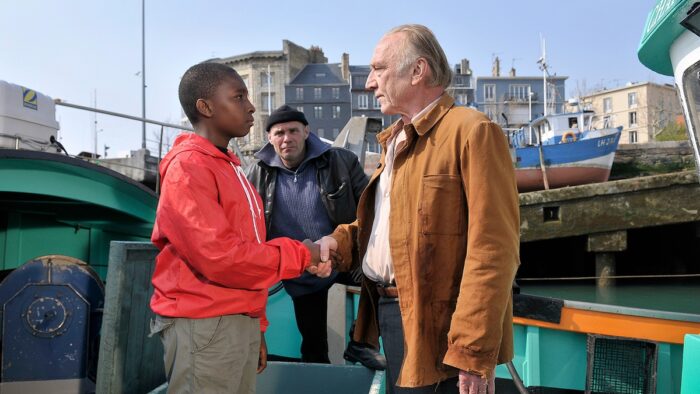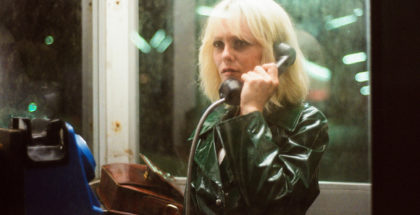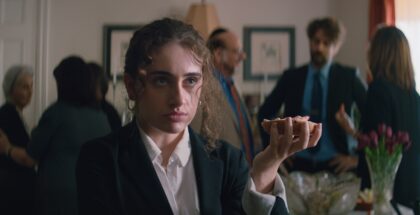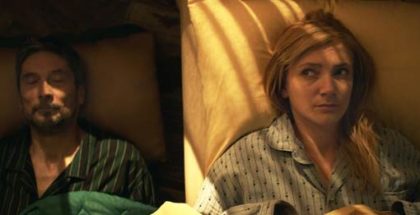VOD film review: Le Havre
Review Overview
Highly relevant themes handled with wit and tenderness
9The Pineapple
8The Palm Dog winning performance
8Katherine McLaughlin | On 05, Oct 2020
Director: Aki Kaurismaki
Cast: André Wilms, Kati Outinen, Jean-Pierre Darroussin
Certificate: PG
Finnish auteur Aki Kaurismäki begins his (still in the making) port cities trilogy in the town of Le Havre in France with the story of a young African immigrant who is on the run from the cops, and a community who harbour him from harm. This cat-and-mouse tale isn’t as straightforward as it sounds, with Kaurismäki at its helm using neo-noir trappings, absurd details and silly visual comedy to weave a hugely compassionate and comical yarn.
When a dock officer hears the sound of a baby crying coming from inside a shipping container, he alerts the authorities, who turn up armed and ready to fire on its opening. Inside are a group of African immigrants, one of whom, Idrissa (Blondin Miguel), flees for safety. That a policeman has to be halted from shooting the boy in the back by Detective Monet (Jean-Pierre Darroussin, dressed in 1940s attire) is a sign of how basic humanity has got lost in vicious bureaucracy and sadly still as relevant today as when the film premiered at Cannes Film Festival in 2011 (where it won the Fipresci prize and the Palm Dog was awarded to loyal starring pup Laika).
Though ignorance and bigoted attitudes appear to be the dominant force, Kaurismäki places hope in the idiosyncratic locals, who instinctively act with kindness and decency towards Idrissa, and, in turn, society’s capacity for good.
Marcel Marx (André Wilms, reprising his role of the lazy Parisian writer from La vie de Bohème 19 years later) is now a shoe-shine trying to make ends meet. He lives with his girlfriend, Arletty (Kati Outinen). She is taken into hospital early on in the film with a grave illness, which she attempts to hide from her beau. When Marcel’s path crosses with Idrissa he instantly takes pity on the boy, feeding him, welcoming him into his home and guiding him to safety. Marcel doesn’t have much to give but he shares what little he does have with Idrissa, even showing him his trade.
The supporting players in Kaurismäki’s film are a diverse mix of actors, including many of the cast of the aforementioned La Vie de Bohème and names associated with influential French cinema, such as Jean-Pierre Léaud from François Truffaut’s The 400 Blows and Pierre Étaix from Robert Bresson’s Pickpocket. You can also see the influence of Jean-Pierre Melville’s heist and noir films (which were recently highlighted in a MUBI season) in Detective Monet’s attire and the plotting, as hilariously complex schemes play out.
With beautifully framed and eye-catching composition, Kaurismäki carves out an optimistic and empathetic tale about humanity doing the right thing. It’s filled with his usual deadpan wit and the dynamic between the players, including the central bond between Idrissa and Marcel offers a beam of light out of the darkness, guiding the audience to locate compassion for their fellow man. It’s less downbeat about the cruelty of a system weighted against its citizens than his previous film, Lights in the Dusk, and displays a delightful tenderness that can also be seen in his subsequent and most recent port-set comedy, The Other Side of Hope.



















